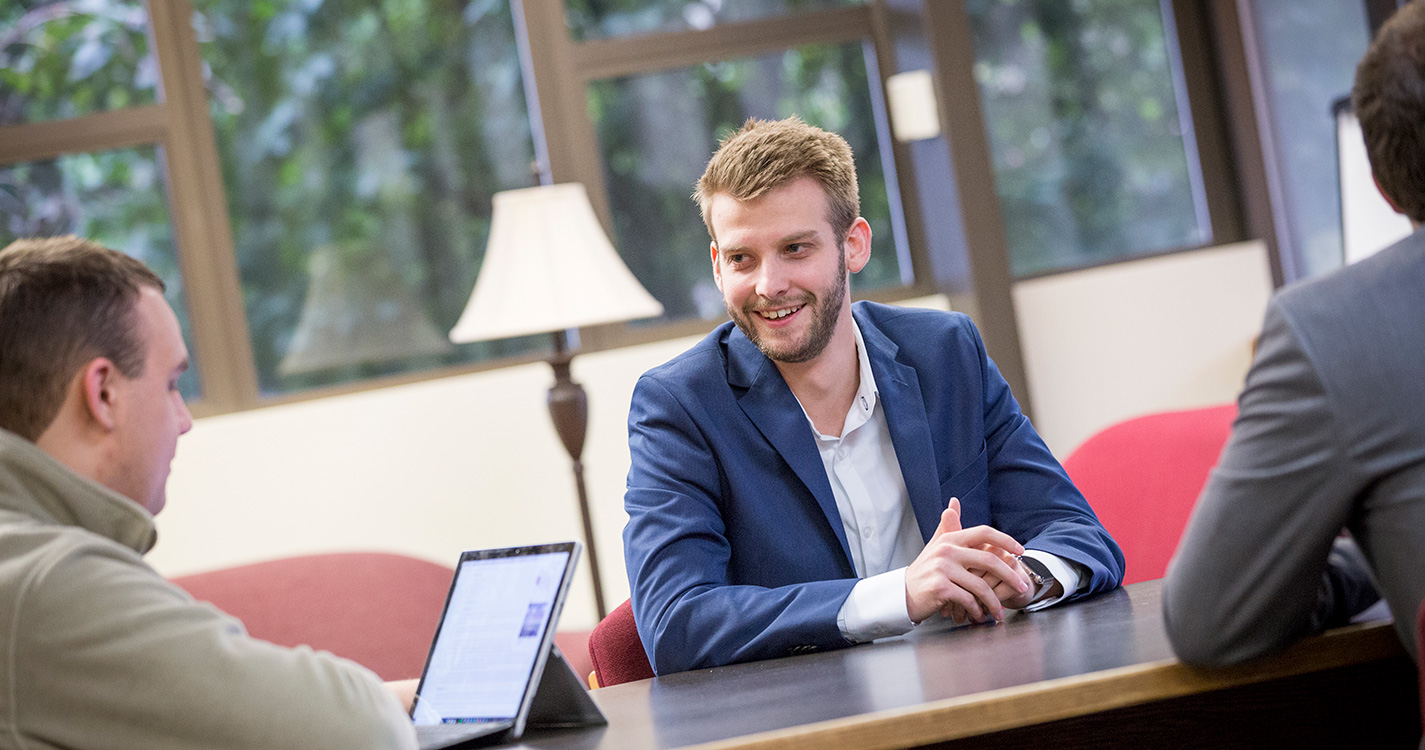America’s need for vehicles today might look quite a bit different tomorrow — imagine streets filled with self-driving cars or even flying taxis.
Car companies will make big changes to vehicles over the next 20 years, and J. Connor Maloney BA ’17, MBA ’18 wants to be part of the decision-making process as the future unfolds.
“People don’t even need to own cars anymore,” he says. “I’m very excited to see what technology can bring to everyday people.”
Maloney became intrigued by the auto industry during his BA/MBA program at Willamette, where he clinched a competitive product strategy internship at Daimler in Portland. After learning how to forecast sales and communicate customer needs with engineers, he knew he wanted to do the same work in the auto industry.
Flexible opportunities
The internship is only one of a few career avenues Maloney explored while attending Willamette. He enrolled in the 3-2 program at Atkinson Graduate School of Management because of its flexibility: he could play sports, pursue an economics undergraduate degree and finish an MBA in one year instead of two.
The fact Willamette offered football was an important distinction. In high school, he played football and says hours of practice and little free time forced him to better manage his responsibilities. He followed the same principle when he arrived at Willamette, where he played defensive back and focused strictly on the game, class work and applying for internships.
Small class sizes gave him rich opportunities for discussion with peers and professors, and he found a mentor in Larry Ettner, professor of management practice. Maloney says Ettner instilled confidence in all of his students and helped them understand how the business world operates outside of the academic world.
Inspired by AGSM’s focus on entrepreneurial endeavors, Maloney invested his own money in controversial digital cryptocurrencies and also cofounded a T-shirt company during his sophomore year. He considers himself an entrepreneur and says Stuart Read, professor of strategic management, taught him to gain enough courage to start pursuing his dream career.
Maloney also found useful lessons in the first-year PACE class — Practical Application for Careers and Enterprises. His teams gathered marketing and survey data for the Boys and Girls Club of Marion County and created a business plan and financial projections for a virtual reality bar and arcade, which won the class competition. He learned that working hard, trying to understand the client’s perspective and creating a list of priorities can make a project go much smoother.
After he graduates in May, Maloney plans to pursue jobs within the auto industry. His internship at Daimler exposed him to the ideas competitors developed related to clean transportation, and he “realized the big impact vehicles have on society and how much we need them.”

